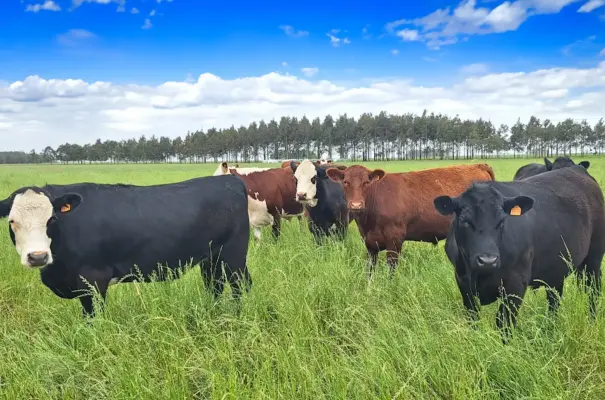International pressure for beef free from socio-environmental liabilities has placed traceability at the center of the livestock agenda. During the debate “Governance in the Sustainability of the Beef Chain,” promoted by Insper Agro Global in partnership with the Brazilian Center for International Relations (CEBRI), experts highlighted that exporting without proof of sustainable practices is no longer an option. Furthermore, technology, engagement with producers, and incentive programs are considered decisive for maintaining market confidence. The meeting, held in August in São Paulo, brought together academics, industry representatives, and rural producers.
The heterogeneity of Brazilian livestock farming was pointed out during the debate as a challenge to be overcome in order to enable uniform policies. This is because the sector includes everything from highly qualified producers to properties that still need to regularize their land tenure and environmental status. According to the panelists, the new European deforestation legislation (EUDR) and eventual trade sanctions from other markets reinforce the urgency of coordinated responses.
Industry and traceability
Marta Giannichi, Director of Sustainability at Minerva Foods and MyCarbon, reinforced the industry’s role in the transition. She highlighted that up to 98% of greenhouse gas (GHG) emissions from livestock farming come from indirect sources, especially enteric fermentation from cattle, classified as Scope 3. This fact underscores the involvement of the entire chain to overcome this challenge. Actions such as reducing slaughter age, pasture recovery, and the possible adoption of nutritional additives are measures that help reduce this type of emission.
According to Marta, traceability is currently a competitive differentiator that determines access to the most demanding markets. “We need to demonstrate these advancements, because if you don’t demonstrate them, you’re a player who’s out of the market. If I want to play this game, I need to make it strategic within the company. And there’s the traceability game, which was a game competing for space with the issue of emissions, but it seems that in recent times it has surpassed it,” she emphasized.
The director also stressed that it’s not enough to comply with rules: it’s necessary to transform sustainability into added value. This means incentivizing producers who adopt good practices. “The industry has been valuing the producer and showing the market that this work reduces risks, delivering meat free from reputational questioning,” she stated.
Exports under pressure
The debate also brought up the perspective of trade barriers. European deforestation legislation (EUDR) and potential sanctions from other countries were cited as factors that make traceability not just a niche requirement, but a prerequisite for maintaining open markets. At this point, Marta emphasized that Brazil needs to show that it already possesses technology and monitoring programs that enable it to meet international demands. Buyer confidence depends on systems that ensure transparency, from the origin of the cattle to final delivery. “Because then you migrate from a product that is a pure commodity to a product that starts to have a differential, with a sustainability attribute embedded in it,” she concluded.




